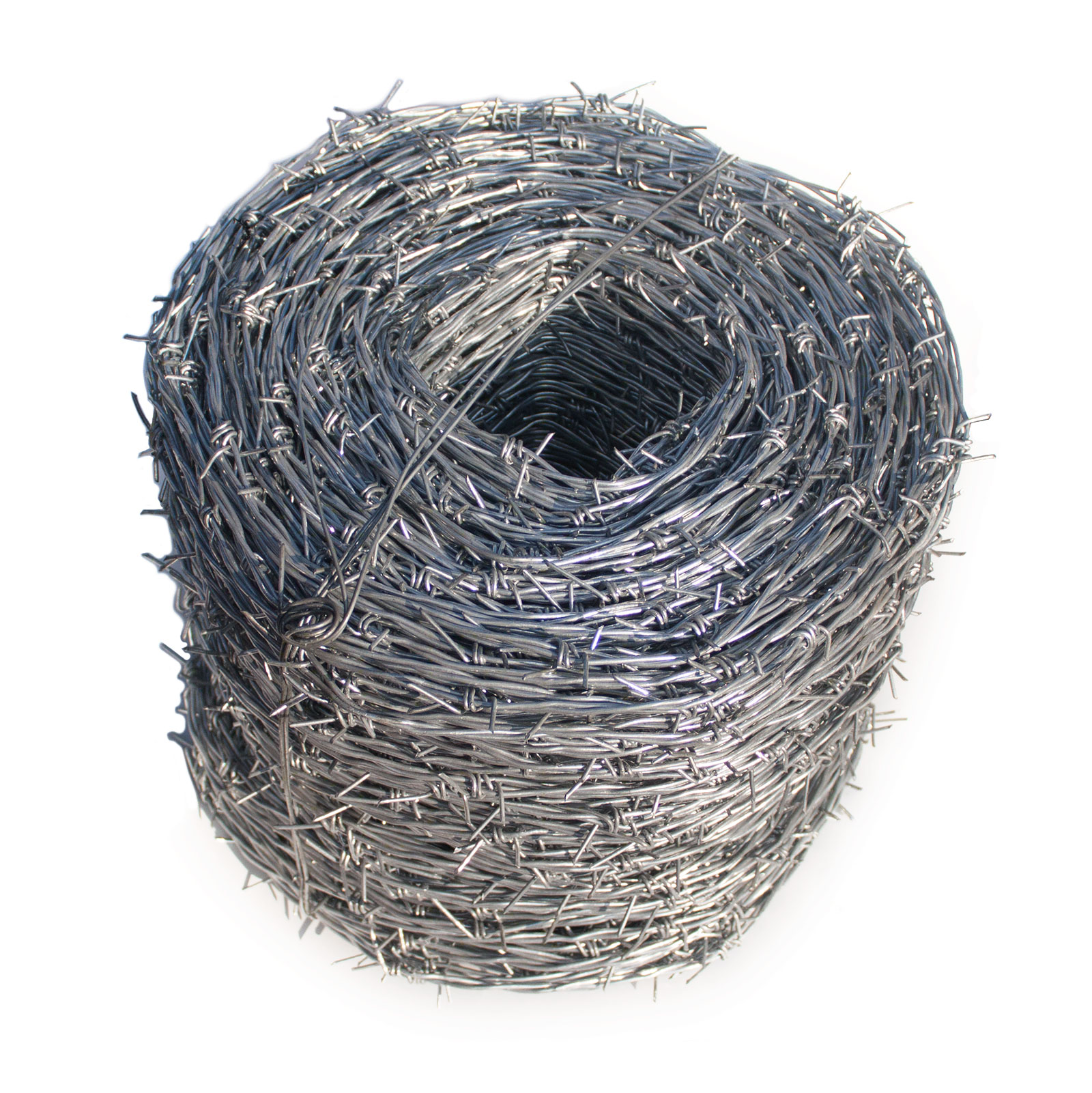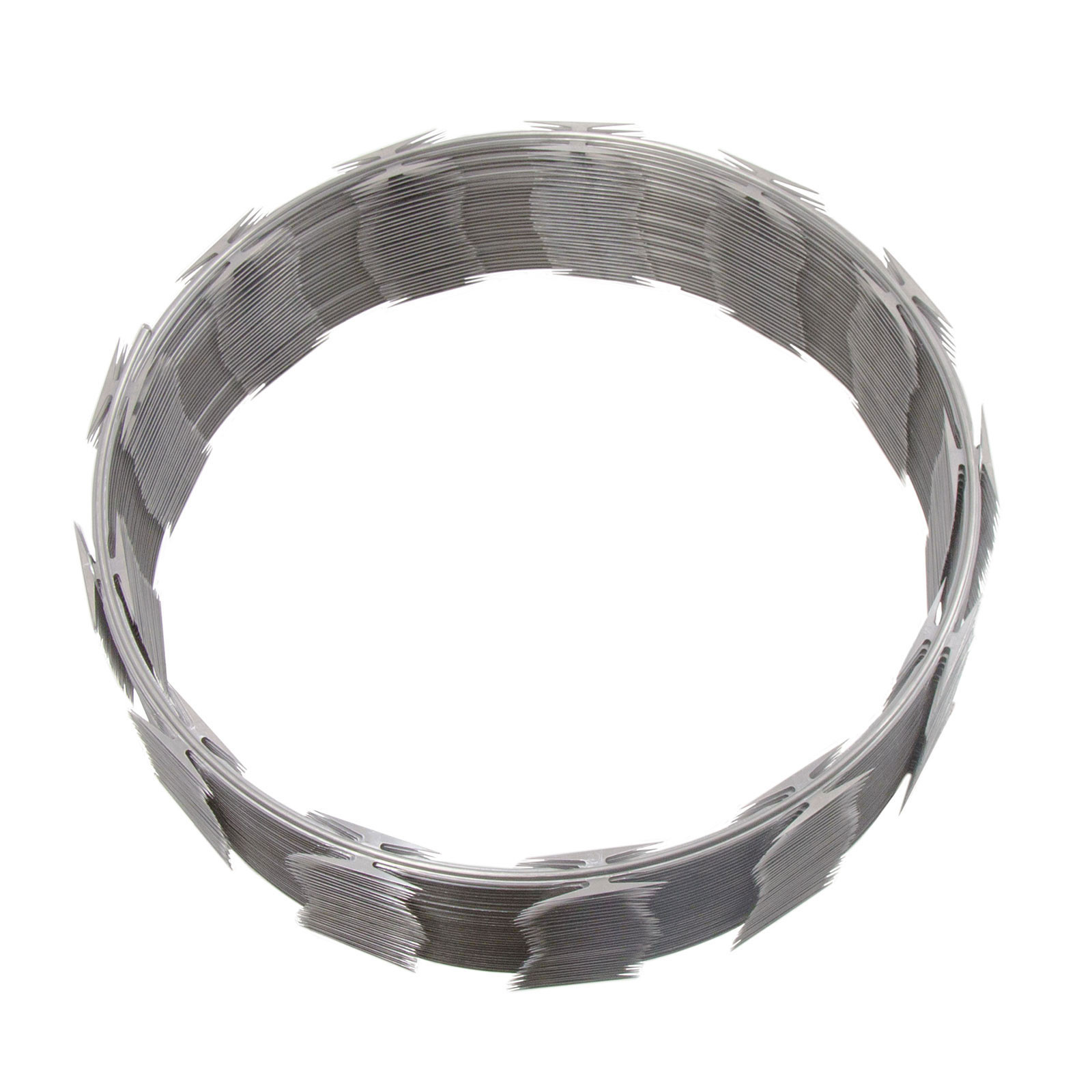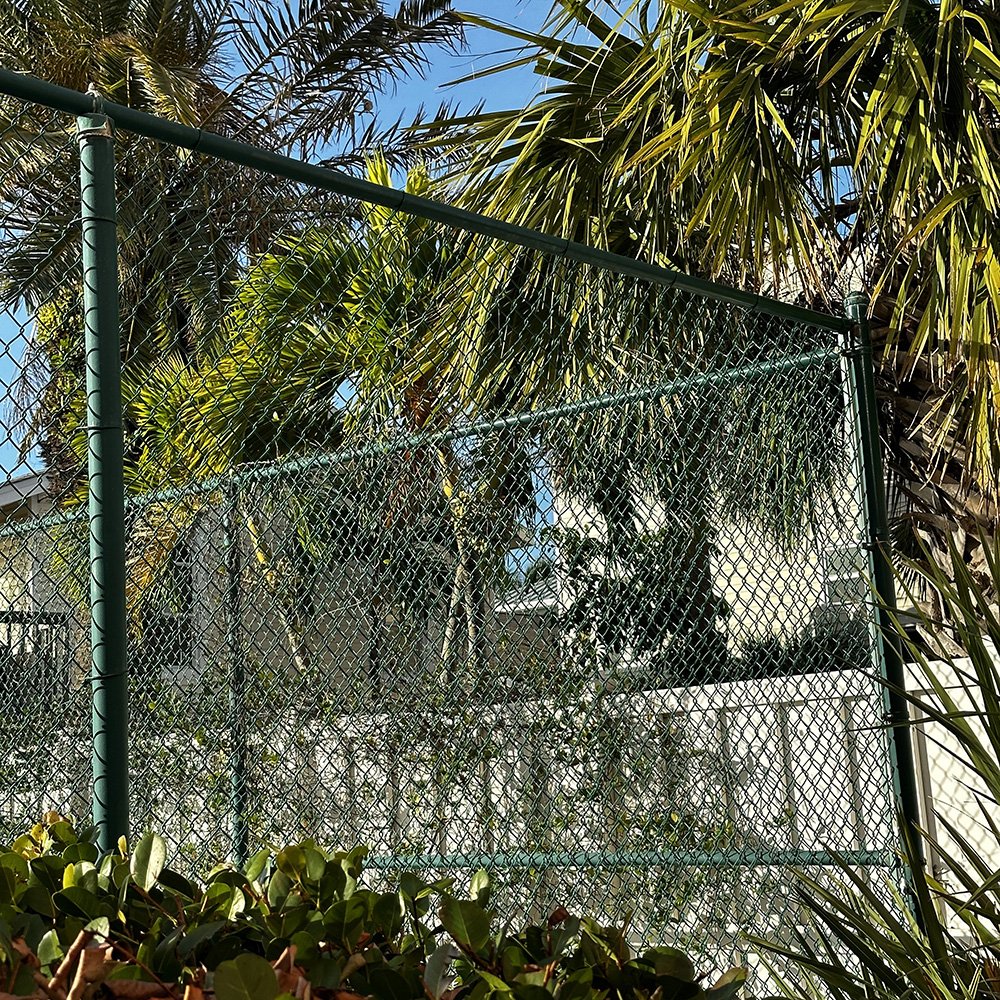What's The Difference Between Barbed Wire And Razor Wire?

Even though razor and barbed wire are both sharp and dangerous for those trying to get in their path, what's the difference between these two types of wire for a chain link fence? First, barbed and razor wire have different uses, so you may want to check how they work before jumping in and purchasing one. But if you're unsure how to distinguish between the two, peruse the information below.
Differences Between Barbed Wire and Razor Wire
What Is Barbed Wire?
The history of barbed wire first began in the plains of the United States around the 1860s. Since wood fences were quite expensive for people living on the prairies and grasslands, they needed a solution to keep livestock in one place. While many inventors competed to patent the best-barbed wire, the recognition finally went to Joseph Glidden, a simple farmer hailing from De Kalb, Illinois, in 1873 and 1874. While the design has changed over the years, Glidden's original patent is still the blueprint for barbed wire today.
Today, what was known as a "thorny fence" back in the day is mainly used for large open spaces. You may find barbed wire on farms or other large chain link fences. Barbed wire comes in different classes to distinguish which barbed wire follows strict standards. For example, a class 3 barbed wire meets ASTM A121-92, A 121-99, and A641/A641M standards. These standards are industry-wide and ensure you purchase a quality product from the best metals. Barbed wire is a budget solution to provide security to an area. Its pointed spikes can cause a person to receive puncture wounds when climbing over it.
If you still need clarification about barbed wire classes, a simple way to remember is by what they are used for.
Class 1 Barbed Wire
The most basic barbed wire in the market. This barbed wire can only be used in residential or industrial buildings far from ocean water.
Class 3 Barbed Wire
This is what most installers use in the industry. Class 3 barbed wire is much thicker than class 1 barbed wire and can last for up to 30 years before it needs to be replaced.
Class 40 Barbed Wire
If you choose this barbed wire, it is made with zinc and aluminum, lasting up to 50 years. This type of barbed wire is used for heavy-duty purposes and will last long in coastal areas.
If you use barbed wire for a parking lot, industrial facility, warehouse, or construction site, class 3 barbed wire is all you need. Class 3 barbed wire is made from galvanized steel and is lightweight and easy to install.
What Is Razor Wire?
While razor wire is similar to barbed wire, some key differences exist. Razor wire is created with sharper points that will cause more damage to individuals attempting to cross a razor wire or chain link fence with a razor wire attachment. Razor wire is used when the security must be elevated to protect government facilities or embassies.
Another critical point is that razor wire is much more expensive than barbed wire. Razor wire should only be used in instances where security is paramount.
Razor Wire Is Used In:
- Military Complexes
- Government Buildings
- Industrial Zones
- Detainment Centers
- Country Borders
- Hospitals
Since razor wire is created from galvanized pressed steel, this wire will not bend, rust, or break for a long time.
Limitations On Barbed And Razor Wire
While many farms use barbed wire to secure cattle in or away from an area, some countries have specific bans on using barbed or razor wire. Please verify the restrictions in your district or country to ensure you can use these materials on a fence.
Can Barbed and Razor Wire Be Used Interchangeably?
Most of the time, barbed and razor wire can be used for the same purpose. However, razor wire is better if you seek the top security choice. But, if you need a solution to deter animals or people in a vast land, a barbed wire fence will work just right.






